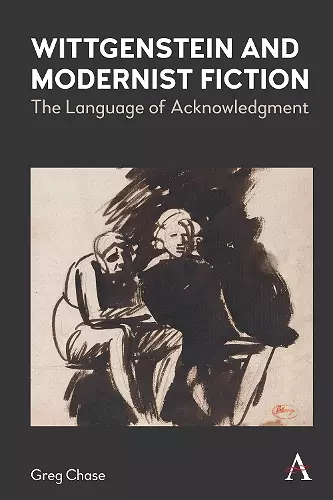Wittgenstein and Modernist Fiction
The Language of Acknowledgment
Format:Hardback
Publisher:Anthem Press
Published:8th Feb '22
Currently unavailable, and unfortunately no date known when it will be back

Shows how works of twentieth-century literature and philosophy together examine language’s capacity to acknowledge the inner lives of marginalized figures
The early decades of the twentieth century were a period of major economic and cultural upheaval across Europe and America. Scholars have typically held that novelists responded to these shifts by questioning language’s capacity to picture the world accurately. But, even as modernist novels move away from a view of language as a means of gaining knowledge, they also underscore its capacity to grant acknowledgment; they treat words as tools for recognizing and responding to the inner lives of others. This book brings out this crucial feature of modernism by engaging with the philosophy of Ludwig Wittgenstein and with Stanley Cavell’s pioneering interpretation of Wittgenstein’s thought. The book shows how Wittgenstein’s interest in acknowledgment emerges over the course of his career-long effort to grapple with the same disorienting conditions of modern life that the experimental fiction of this period registers, including world wars, industrialization, and new conceptions of sexuality. It, then, argues that modernist novels by E.M. Forster, Virginia Woolf, Nella Larsen, William Faulkner, and others exhibit a similar interest in language’s capacity to grant acknowledgment. These novels offer readers a way of hearing what Wittgenstein calls “the silent soliloquy of others,” giving us words by which we might acknowledge the otherwise unvoiced inner lives of socially marginalized figures.
“Wittgenstein and Modernist Fiction unsettles and displaces conventional understandings of literary modernism’s skepticism about the effectiveness of its own linguistic medium. It does so by calling attention to the historical and cultural contexts of linguistic skepticism in novels by a wide range of modernist writers, from Ford, Forster, and Woolf to Faulkner, Larsen, and Ellison. The philosophy of Wittgenstein and Cavell enable Chase to move beyond abstract questions of knowledge to an embodied ethics of acknowledgement. The result is a strikingly original and valuable contribution to a growing body of scholarship on Wittgenstein and literary modernism.” Michael LeMahieu, Clemson University, US
ISBN: 9781839980633
Dimensions: 229mm x 153mm x 26mm
Weight: 454g
250 pages